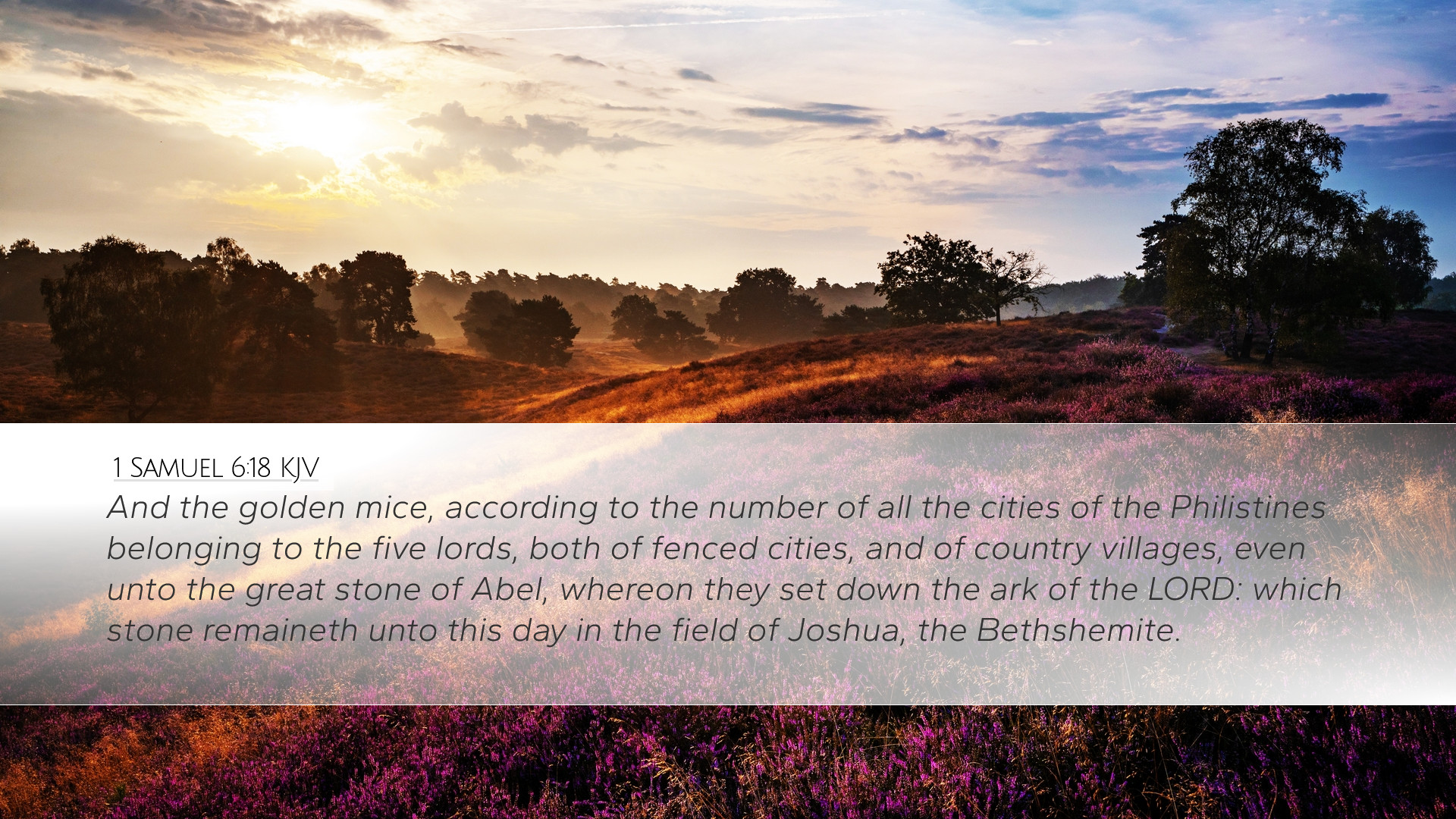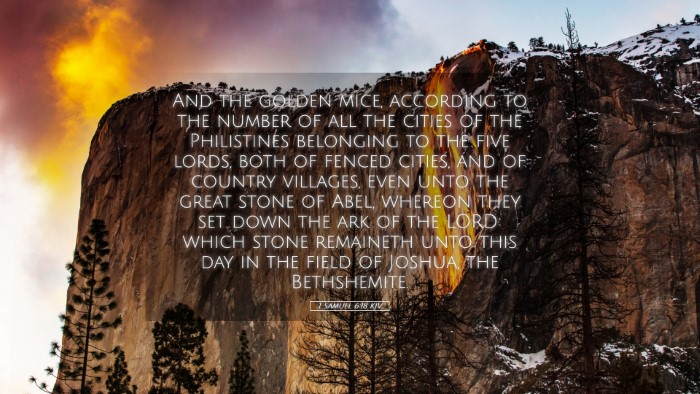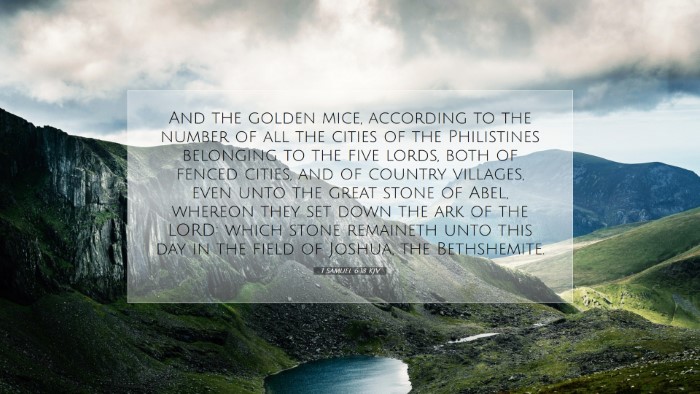Commentary on 1 Samuel 6:18
1 Samuel 6:18 reads: "And the golden mice, according to the number of all the cities of the Philistines belonging to the five lords, both of fenced cities and of country villages, even unto the great stone of Abel, whereon they set down the ark of the Lord: which stone remaineth unto this day in the field of Joshua, the Bethshemite."
Introduction
This verse encapsulates a significant moment in the narrative of the Ark of the Covenant among the Philistines and its return to Israel. The text presents important insights into the cultural and historical context of the era, revealing the interplay between divine sovereignty and human actions. Several renowned public domain commentaries shed light on various aspects of this verse, offering reflections beneficial for pastors, students, theologians, and Bible scholars.
Historical Context
The return of the Ark to Israel was the conclusion of a tumultuous period during which the Philistines captured it. The golden offerings, which included mice, signified both a means of appeasing the God of Israel and a recognition of the calamities that befell the Philistines during the Ark’s captivity. Understanding the relationship between the Israelites and the Philistines is crucial for comprehending this return.
Matthew Henry's Commentary
According to Matthew Henry, this verse illustrates God’s judgment upon the Philistines for their actions against the Ark. His commentary emphasizes that the golden mice were not just a tribute but also a symbol of the afflictions the Philistines endured, which were interpreted as divine punishment. Henry notes that the number of mice corresponded to the number of cities under Philistine control, exemplifying a direct correlation between their sin and suffering.
Adam Clarke's Insights
Adam Clarke adds that the mention of the “great stone of Abel” marks a significant geographical reference that serves an important narrative function. This stone was where the Philistines returned the Ark, and its enduring presence symbolizes God's mercy and the renewal of covenant relationship with His people. Clarke points out that the cities of the Philistines comprised both large fortified cities and smaller villages, suggesting that sin's repercussions were widespread among their populace.
Albert Barnes' Contribution
Albert Barnes comments on the theological implications of the events surrounding the Ark’s return. He sees this as an acknowledgment of God’s supreme authority over both Israel and its enemies. The detailed description of the golden mice, each representing cities, illustrates the comprehensive nature of human accountability before God. Barnes urges readers to comprehend that divine retribution can manifest in various forms, reflecting the necessity for repentance and recognition of God’s sovereignty.
Symbolism of the Golden Mice
The reference to golden mice is laden with meaning. It indicates an understanding on the part of the Philistines of their dire need to placate the Israelite God. Each golden mouse serves as a symbol of their acknowledgment of guilt; by offering something valuable, they hoped to avert further calamity. This gesture foreshadows later themes in the Bible concerning atonement and the necessity of offerings.
Theological Reflections
This narrative contains significant theological insights relevant to modern readers. The concept of divine judgment and mercy can be seen within the Philistine's experience, offering lessons about idolatry, accountability, and the real consequences of straying from divine mandates.
Accountability and Idolatry
The Philistines’ idolatry led to their downfall, which serves as a cautionary tale for contemporary believers. The use of the golden mice implies that even in their recognition of God’s power, the Philistines failed to abandon their previous trust in false gods. The commentary encourages reflection on personal and communal idols that may lead believers astray.
God's Sovereignty
God's sovereignty is a central theme in this passage. The fact that the Ark returned to Israel signifies God’s continual presence and commitment to His people despite their unfaithfulness. Commentators emphasize that this illustrates God’s grace and willingness to restore His relationship with humanity, an echo of the biblical narrative of redemption through Christ.
Conclusion
1 Samuel 6:18 provides a multifaceted commentary on divine justice and the interplay between sin and its consequences. By integrating insights from commentators like Matthew Henry, Adam Clarke, and Albert Barnes, we uncover a rich tapestry of meaning. This verse serves as a reminder of the seriousness of idolatry, the need for accountability, and the sovereignty of God throughout history.


